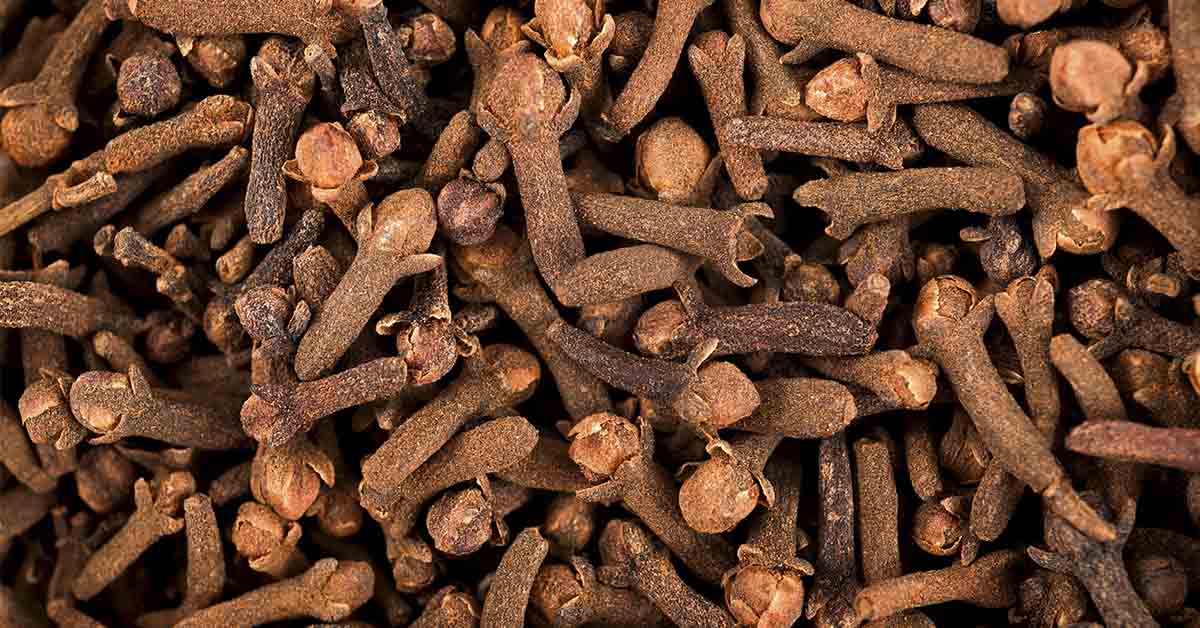You’ve probably heard of cloves and even used them yourself in baking and cooking. It is a popular spice used to add both a warmth and a sweetness to many dishes and drinks. It turns out, however, that they actually have some pretty significant health benefits. This is your ultimate guide to cloves: Their health benefits, uses, how they work, potential side effects, and how easy it is for you to incorporate them into your daily routine.
How Cloves Grow

If you’ve ever looked at whole cloves and thought that they resemble flower buds, then you were right: They are the flower buds of the clove tree, scientifically known as Syzygium aromaticum. The clove tree is an evergreen plant native to the Maluku Islands in Indonesia, but it is now cultivated in tropical regions around the world. They grow best in tropical climates with rich, well-drained soil and regular rainfall. The tree can grow to a maximum height of 30 feet and produce fragrant, crimson flower buds that are harvested before they bloom. Those little buds are then dried in the sun, and when they turn the deep reddish-brown color that you are probably used to. This process can take anywhere from several days to weeks, depending on the method used. Cloves are always harvested by hand to ensure the best quality possible.
Benefits of Cloves
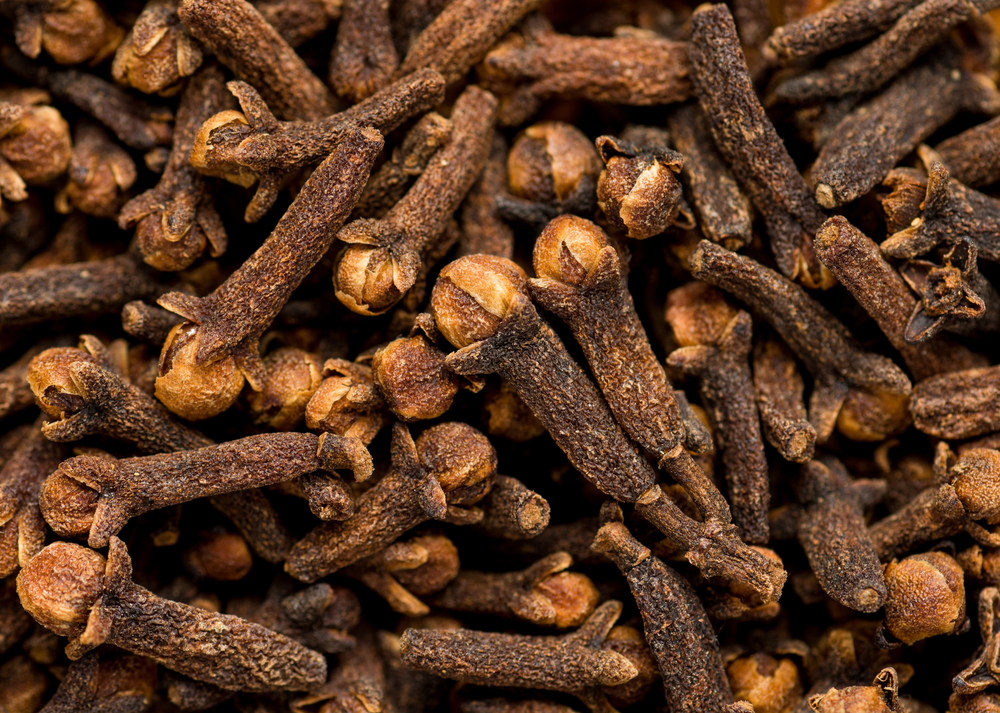
There is a compound in black cloves that you may never have heard of, but it can do amazing things for your health. This compound is called eugenol. It contains anti-inflammatory and antibacterial properties, and has been used for generations in traditional Chinese and Ayurvedic medicine. While more scientific research is still needed to fully understand the properties of cloves and how they improve our health, no one is denying that this is a powerful little spice. Here are some possible health benefits of cloves:
Read More: 30 Best Herbs To Support Lung Health and Aid in Clearing Mucus
Ease Dental Pain and Prevent Gum Disease

Eugenol, as we now know, is a powerful antibacterial agent. This means that it can help to reduce harmful bacteria in the mouth. These bacteria contribute to dental plaque buildup, cavities, and gum disease. Traditionally, cloves have been recognized for their ability to decrease tooth pain and prevent gum disease. You can access these benefits by using clove-based herbal mouthwashes or even by applying clove oil topically to the affected area. Be careful not to use too much and avoid swallowing the oil. This may help to alleviate toothaches and gum inflammation. Cloves may offer a natural and effective solution to promote oral health and prevent dental issues. That being said, if you have persistent tooth pain, bleeding or inflamed gums, or jaw pain, you should visit your dentist.
Read More: 11 Natural Toothache Remedies You Can Do At Home
May Help Lower Blood Sugar

If you have a family history of high blood sugar, cloves may offer a natural solution to help you keep yours at an appropriate level, avoiding the need for medications. The impact of cloves on blood sugar levels has garnered some attention, as some research has found potential benefits for those with diabetes or those at risk of developing the condition. The research suggests that the eugenol in cloves may help to improve insulin sensitivity, thus helping to lower blood sugar levels. Though this is exciting research, it is important for diabetic and pre-diabetic individuals not to ignore the advice of their doctor. First of all, cloves cannot replace traditional blood sugar medications and treatments. Secondly, if you are already on medications to control your blood sugar, it is important that you talk to your doctor before incorporating high doses or concentrations of cloves into your daily routines. The best way to profit from the blood sugar-controlling benefits of cloves without compromising your medication or your health is to simply incorporate them into a well-balanced diet. Consuming it as a spice in food and warm drinks shouldn’t be problematic. If you are curious about using cloves in a more potent form, you must consult your health care provider first.
Read More: 14 Signs Your Blood Sugar Is Way Too High (And 14 Ways to Reduce It)
May Help Lower Blood Pressure

Not only can they help to lower blood sugar, but this powerful little spice can help to lower blood pressure at the same time. Research has shown that eugenol, along with some of the other compounds found in cloves, have vasodilatory effects. This means that they may help to relax and widen blood vessels, potentially leading to lower blood pressure. Cloves also contain antioxidants which help to reduce oxidative stress and inflammation in the body, two factors known to contribute to high blood pressure. Some research shows that incorporating cloves into your diet or using clove oil in aromatherapy may help to promote healthy blood pressure and cardiovascular health. That being said, they can not replace prescribed blood pressure medications. Anyone already on blood pressure medication should consult with their doctor before trying any kind of naturopathic aid for their blood pressure.
Read More: 10 Natural Home Remedies To Help Lower High Blood Pressure
Eugenol in Cloves: Exploring Potential Anti-Cancer Properties

Eugenol is a powerful antioxidant and anti-inflammatory substance. Thanks to these properties, it has some promising potential as an anti-cancer agent. There is some research that suggests that the bioactive components in cloves may help to inhibit the growth of cancer cells while simultaneously inducing cell death in certain types of cancer. More research is required to fully understand the mechanisms underlying these anti-cancer effects of cloves. Incorporating cloves into an already healthy, balanced diet may offer some additional cancer protective effects. As always, it is important to remember that cloves cannot and should not replace traditional cancer treatments. It is important to consult a healthcare practitioner before incorporating cloves for potential cancer prevention, especially if you are looking to take them in high concentrations.
Relieve Itchy Skin

In traditional medicine, cloves – in particular, clove oil – have been used to help relieve itchy skin. This is thanks to the spice’s natural analgesic and anti-inflammatory properties. Again, it is the powerful compound eugenol at work here, having been found to have a soothing effect on itchy, irritated skin. To use clove oil on your skin, you must first dilute it in a carrier oil such as coconut or olive oil. From there, apply this oil mixture topically to the affected area. Before applying to a large or highly visible area of your skin, first do a patch test to check for any adverse reactions. Just because clove oil is natural, doesn’t mean it will necessarily be right for you. As always, it is best to first consult with a dermatologist or healthcare provider before use. This is especially if you have sensitive skin or pre-existing skin conditions, to make sure that this is safe for your skin and won’t make your condition worse.
Read More: 8 Home Remedies for Itchy Skin
Improve Breathing

If you’re having some difficulty breathing, perhaps some phlegm build-up post cold and flu season, then breathing in steam with cloves may offer some respite. Eugenol and other aromatic compounds in cloves have been traditionally used for their therapeutic benefits on the respiratory system. Clove-infused steam can help to open up your airways, soothe sore throats, and alleviate respiratory congestion. It can be beneficial for relief from colds, bronchitis, and even allergies. It does this by loosening mucus and making it easier to breathe. All you have to do is add a few cloves or a few drops of clove oil to a bowl of steaming hot water, lean over the bowl and cover your head with a towel to trap the steam, and breathe deeply. Do be cautious to ensure that the steam is warm but not too hot, as steam can very easily burn your skin. If you have pre-existing respiratory conditions or sensitivities, consult with your doctor before trying this method.
Read More: Can Essential Oils Help With asthma?
Cloves for Weight Loss?

Compounds found in cloves like eugenol and other antioxidants have shown potential to help to boost your metabolism and promote fat burning. This, in turn, could be an aid for those trying to lose weight. As we already learned, cloves have blood sugar regulation and anti-inflammatory properties, which are both factors that can impact weight management. That being said, simply adding cloves to your diet or taking any kind of cloves supplement won’t magically make the fat melt away. Cloves are an aid to a healthy, balanced diet, good sleep hygiene, stress management, and consistent exercise routine. If you are struggling to lose weight, consult with an expert – a doctor, dietitian, or a well-respected, science-based personal trainer. With them you can discover and discuss what is currently preventing you from losing weight and find solutions to help you achieve the healthiest version of yourself.
Can Cloves Kill Parasites?
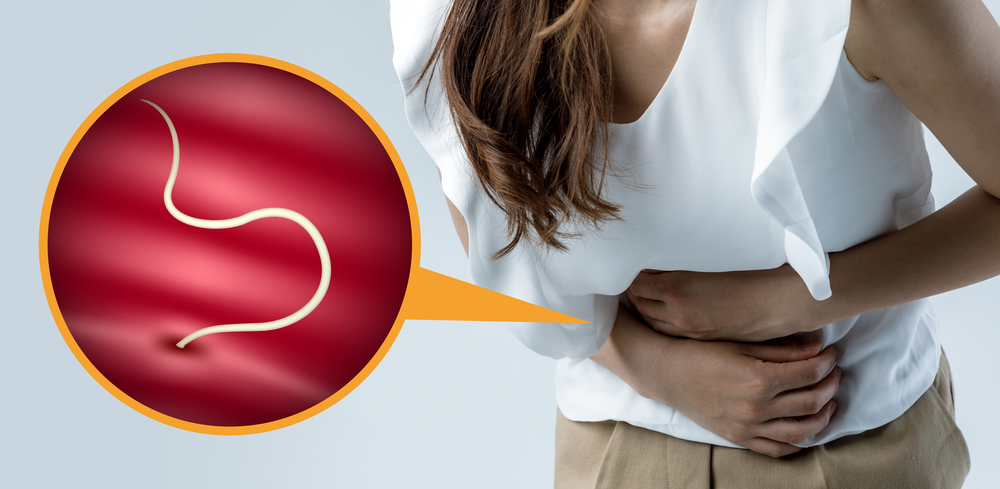
In traditional medicine, cloves have been used as a natural remedy to eliminate parasites from the digestive system. Eugenol and other volatile oils have been thought to have some anti-parasitic properties, hence their use for parasites. Some studies do suggest that these compounds may have the ability to inhibit the growth of some parasites, in addition to their anti-inflammatory and antimicrobial effects. Despite their potential, it is important to recognize that while cloves might have potential as an anti-parasitic agent, the scientific evidence to support their effectiveness as a standalone treatment is quite limited. Seek advice from your healthcare provider to determine the most suitable course for you to get rid of digestive parasites.
Read More: Rosemary: The Brain Boosting Herb
Can Cloves Kill Bed Bugs?

Bed bug infestations are no fun, and getting rid of them can be challenging. It has been suggested that cloves may naturally repel bed bugs due to their strong odor and potential insecticidal properties. Some people believe that placing whole cloves or sachets filled with cloves in areas where bed bugs may be present will help to deter them. Others put drops of essential clove oil into water to make a spray to discourage bed bugs from staying in the first place. That being said, the effectiveness of cloves in completely eradicating a bed bug infestation is not proven and will not likely offer a long-term solution. If you have a problem with bed bugs, you should consult a professional pest control service to address the problem quickly and effectively.
Potential Side Effects of Cloves
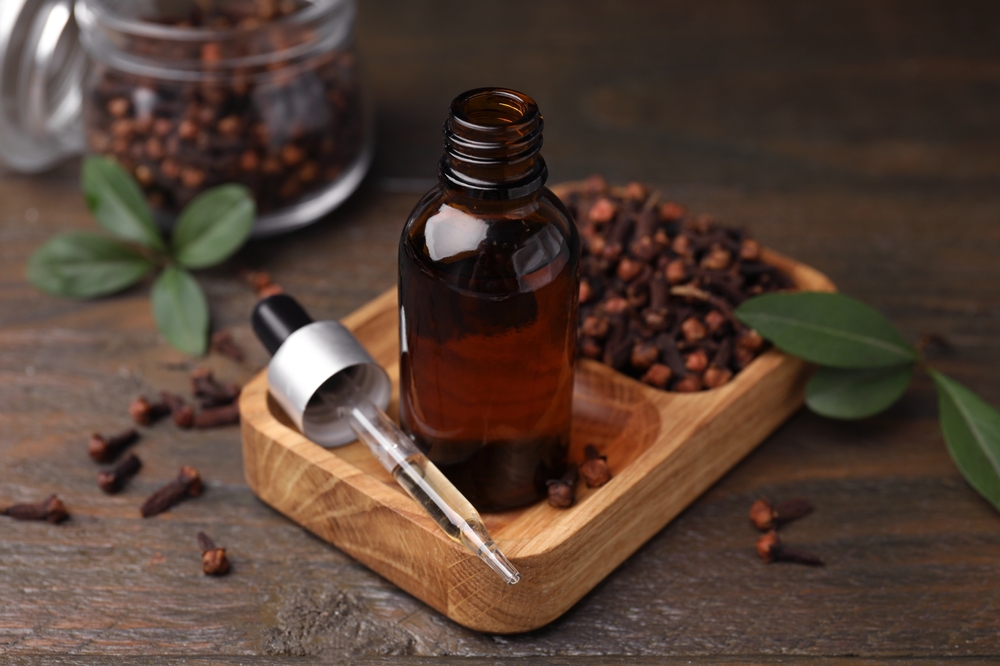
Repeat after me: Just because something is natural, doesn’t mean it can’t be dangerous. Cloves, despite being a common ingredient, are no different. There are potential risks and side effects to be aware of, particularly if you are considering consuming cloves in higher doses. Clove oil can be toxic when ingested, especially for children. It can cause liver damage and seizures. Individuals who are pregnant, breastfeeding, on blood thinners, preparing for surgery, or managing diabetes with insulin should avoid excessive use of clove products. Again, adding it as a flavoring ingredient in baked goods, savoury dishes, or warming beverages will do no harm. Consuming supplements or any other products that have highly concentrated versions of clove, however, should be avoided.
Can Cloves Cause Miscarriage?

There is a common belief that consuming large amounts of cloves early on in pregnancy could lead to a miscarriage because of the eugenol in cloves. The thought is that this compound has uterine-stimulating effects. There is, however, insufficient scientific evidence to support this claim. As just stated, consuming small amounts of clove spice in baked goods, recipes, teas, and other items is not dangerous to pregnant women or their growing child. Pregnant women are advised to consume spices including cloves in moderation, yes, but the data simply doesn’t support the thought that the normal culinary use of cloves poses a significant risk of miscarriage. That being said, it is advised to avoid using cloves in high concentrations, such as is found in essential oils. Again, if you are at all unsure, consult your doctor who can help to steer you in the right direction.
How to Incorporate Cloves Into Your Routine
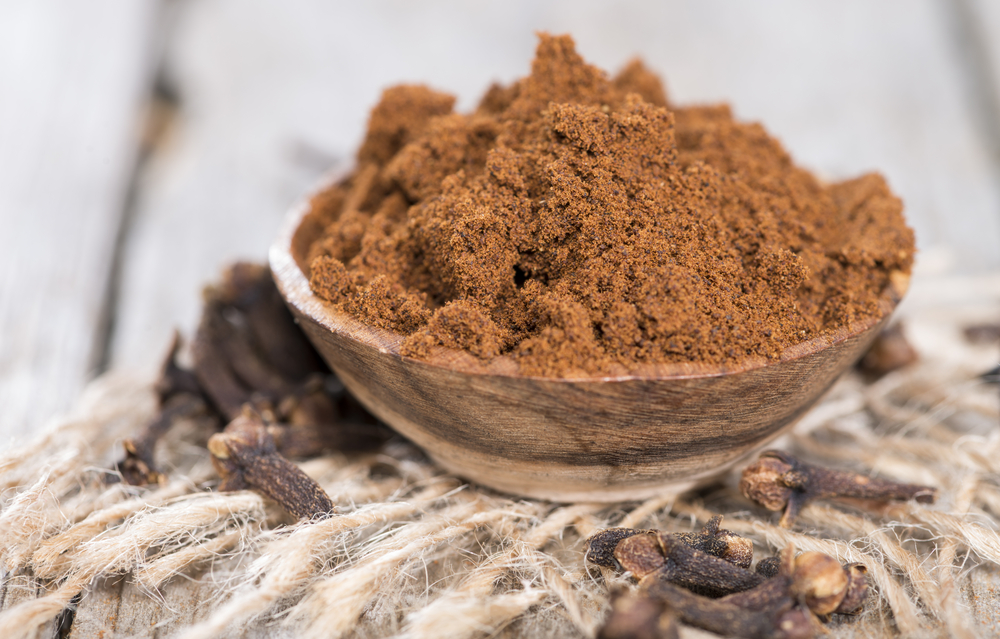
Including cloves into your regular routine couldn’t be any easier – or tastier. Consider adding them to your favorite dishes to give them a new flavor dimension. Add a teaspoon or so into baked goods, a dash or two in sauces, meat rubs, marinades, or sprinkle them into your chai or coffee-based lattes for some additional pizzaz. Avoid consuming clove oil as well as clove water, as these products often contain too-high concentrations or eugenol and other compounds that cause you more harm than good. Remember to use cloves safely and consult with a healthcare provider if you have any concerns about incorporating them into your routine.
Disclaimer: This information is not intended to be a substitute for professional medical advice, diagnosis or treatment and is for information only. Always seek the advice of your physician or another qualified health provider with any questions about your medical condition and/or current medication. Do not disregard professional medical advice or delay seeking advice or treatment because of something you have read here.
Read More: These Common Daily Drinks Are Linked to 50% Lower Risk of Heart Disease and Diabetes
